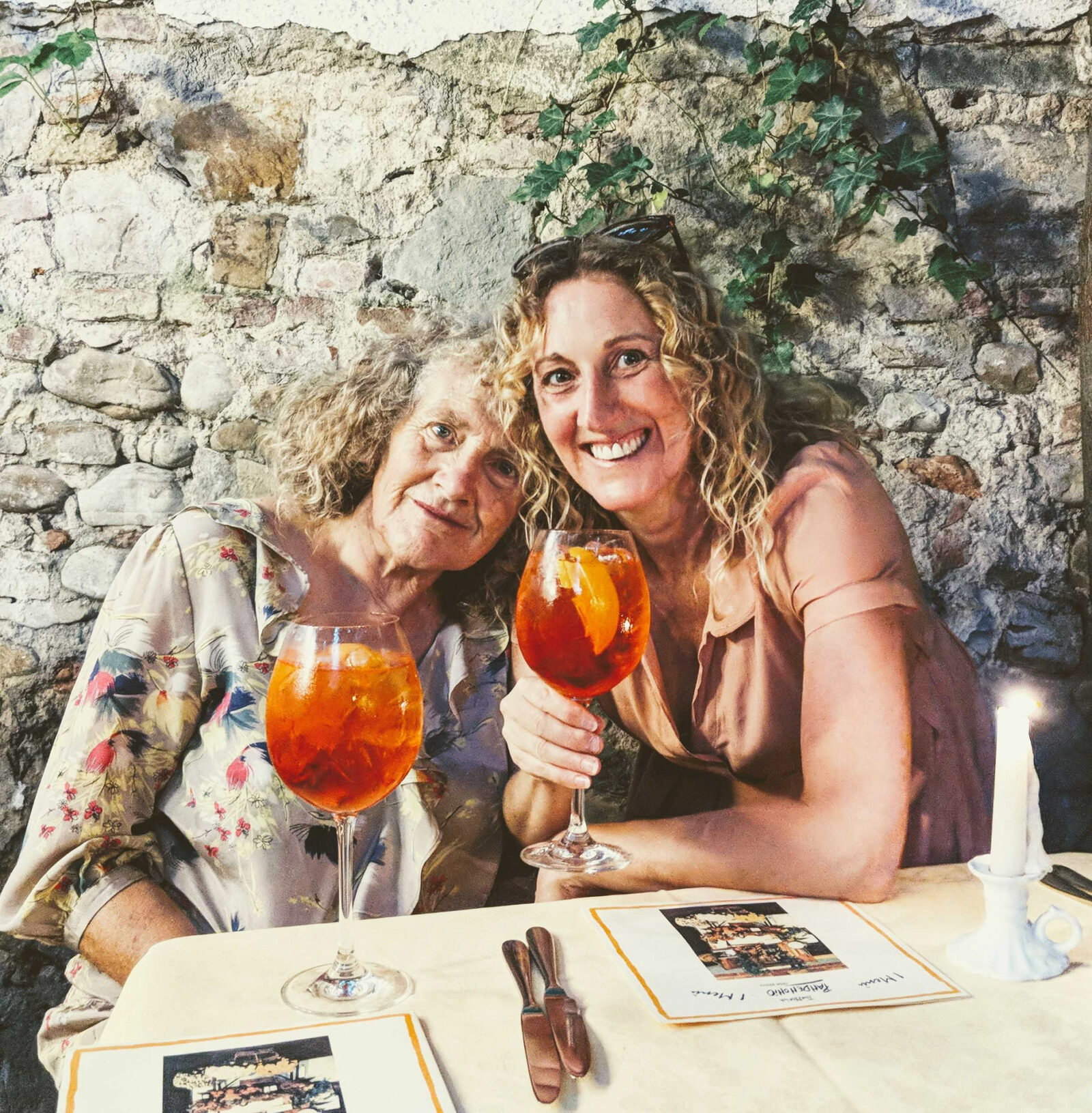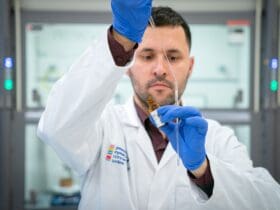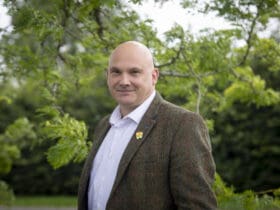Today (Thursday 3 October) the UK’s leading dementia charity, Alzheimer’s Society, has launched a powerful new campaign to shed light on the hidden reality of dementia and the devastating impact of a lack of support, creating an unignorable case for dementia to be made a political, health and care priority.
Dementia is the UK’s biggest killer, yet almost half of people living with dementia in Wales (44%) don’t have a diagnosis.
The charity’s latest campaign aims to bring out from behind closed doors the hidden reality of the UK’s leading cause of death
Alzheimer’s Society is calling on people across the UK to share their own experiences of dementia to help bring about change and make dementia a national conversation, via a dedicated stories hub on its website (alzheimers.org.uk/stories).
The charity will take the stories it collects to those who need to hear them the most, holding decision-makers and governments across the UK to account to face up to the UK’s biggest killer, realise the magnitude of the issue and address the urgent challenges it poses.
Welsh Government estimates 42,000 people are living with the condition, but Alzheimer’s Society suggests the figure could be as high as 50,000 are living with the condition in Wales. Early, accurate dementia diagnosis should open the door to treatment and support.
But research commissioned by Alzheimer’s Society with 3,476 people affected by dementia, including 400 in Wales, has found:
Families bear the brunt – More than half (58%) of the carers the charity spoke to in Wales said they have received no help; only 8% of those spoken to in Wales had received a carers assessment even though this is a statutory requirement.
Almost two thirds (61%) of those polled in Wales think more information about dementia would help, while half of people in Wales (50%) think there needs to be better understanding amongst the general public.
Research commissioned by Alzheimer’s Society has also revealed that only around a third (35%) of family carers in Wales were satisfied with the support available for people living with dementia.
The charity is releasing this data the day after Channel 4 documentary Anna Richardson: Love, Loss and Dementia aired. Fronted by presenter and journalist Anna Richardson, the programme will follow stories of those impacted by dementia and those dedicating their lives to ending its devastation, showing the breadth of dementia in all its forms and stages.
Alzheimer’s Society is calling on people across the UK to share their own stories of dementia to help bring about change and make dementia a national conversation, via a dedicated stories hub on its website (alzheimers.org.uk/stories).
The charity will take the stories it collects to those who need to hear them the most, holding decision-makers and governments across the UK to account to face up to the UK’s biggest killer, realise the magnitude of the issue and address the urgent challenges it poses.
Gemma Roberts, National Influencing Manager for Alzheimer’s Society, said: “Dementia is the greatest health and social care issue of our time and the UK’s number one killer, yet it isn’t the priority it should be.
“These statistics represent thousands of families who are too often left to pick up the pieces, largely behind closed doors, where our broken NHS and social care systems are failing them.
“Every day at Alzheimer’s Society we hear from families who have been left unsupported, feel isolated and are reaching breaking point caring for a loved one with dementia.
“We cannot accept that people affected by dementia don’t get the appropriate care, support and diagnosis they need and deserve. From a political, financial and ethical point of view we cannot afford to ignore this any longer.
“We need to make dementia the political, health and care priority it deserves to be and unlock the support we know is desperately needed. We are calling on the Welsh Government to act now, and begin to improve diagnosis rates so that everyone with dementia can access the treatment and support they need.”
Photographer Helen Rimell (39) from South Wales is a full-time carer for her mother, Susan (74). Susan was diagnosed with early onset vascular dementia in 2015. In 2021, Helen left her life in London to move back to Wales to become her mother’s full-time carer.
Helen understands the difficulties of caring for a loved one with dementia. She said: “Caring for someone with dementia is emotionally, mentally and physically exhausting, and heartbreaking in every way. I didn’t know just how bad dementia could get and trying to keep my photography business afloat whilst caring for my mum has been really difficult.”
Helen hasn’t received a carer’s assessment and has found it difficult to access support to help with Susan’s mobility and changes in her behaviour. She feels she, and many others, would benefit from increased awareness of dementia and its impact on families.
“When I first started caring for Mum, I had no idea where to look for support. I think many families sadly share the experience of being left to cope alone once they receive their diagnosis. It’s really difficult to adjust to a new way of living. Trying to navigate the care and support system makes it that much harder. You really have to fight for the support you need.
“Greater awareness of dementia and the challenges facing families and carers would help massively. In my experience, the people around me who haven’t been affected by dementia find it hard to truly understand my situation and there’s no one to talk to. Greater understanding would help open doors to support for the person living with dementia and those caring for them.
“My mum and I spoke about sharing her story when she was first diagnosed which is why I started the photographic project ‘No Longer Her(e)’. She was always all about helping other people and I feel it’s her legacy for something good to come out of it. We both feel it’s so important to raise awareness, to help others feel less alone.”
The charity is encouraging people to share their own dementia stories and read others’ at alzheimers.org.uk/stories.









Leave a Reply
View Comments